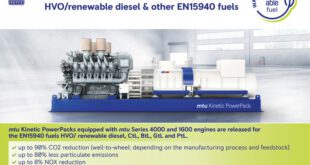Looming on the horizon is a future of high gas prices and disuse for most cars on the road today. More and more drivers are getting on board with alternatively-powered vehicles, and thus, more manufacturers are offering vehicle models outfitted with alternative engines to feed the demand. According to the U.S. Department of Energy, in 2010, vehicle dealers in the U.S. offered 56 alternative-fuel models; by the start 2013, that number had increased to 162 models on the market.
With a variety of different fuels hitting the market to replace the age-old consumption of gasoline, drivers of these new vehicles have fuel choices like electricity, propane or hydrogen. With such choices come concerns like new fueling stations, vehicle maintenance and insurance coverage for your alternatively-powered vehicle. Regardless of the source of your car’s power, there are a handful of essential tips you need to know for insuring your alt-ride.
WITH SUCH CHOICES COME CONCERNS LIKE NEW FUELING STATIONS, VEHICLE MAINTENANCE AND INSURANCE COVERAGE FOR YOUR ALTERNATIVELY-POWERED VEHICLE. REGARDLESS OF THE SOURCE OF YOUR CAR’S POWER, THERE ARE A HANDFUL OF ESSENTIAL TIPS YOU NEED TO KNOW FOR INSURING YOUR ALT-RIDE
Types of Alternative Vehicles
- Hybrid & Electric – These are the most common and fastest growing market of alternative vehicles.
- Types:
- Hybrid Electric – The classic hybrid system made famous by the Prius. The motor primarily runs on gas, but charges the battery with regenerative braking and will use the battery power for idling and cruising.
- Plug-In Hybrid Electric – This hybrid’s battery charges both when plugged in and through regenerative braking. And while the battery is the primary means of power, the gas-powered engine supplements the battery pack when needed or can operate the vehicle if the battery is out of charge.
- Electric – With the introduction of the Nissan Leaf as the first all-electric vehicle from a major manufacturer, the market for electric vehicles is growing fast. A decade ago, the only all-electric vehicles available to the buying public were produced by niche manufacturers in quantities that barely crested a few thousand units.
- Number of U.S. Charging Stations as of 2012: 13,392
- Savings Bonus: Federal tax credits exist for buyers of hybrid or electric vehicles, and some states are offering tax credits as well.
- Types:
- Propane – Both Ford and General Motors produce propane-powered light duty fleet vans and trucks. According to the U.S. Department of Energy, “Lower maintenance costs are one reason behind propane’s popularity for use in light-duty vehicles, such as pickup trucks and taxis, and for heavy-duty vehicles, such as school buses. Propane’s high octane rating (104 to 112 compared with 87 to 92 for gasoline) and low carbon and oil contamination characteristics have resulted in documented engine life of up to two times that of gasoline engines.”
- Number of U.S. Fueling Stations as of 2012: 2,654
- Savings Bonus: Lower maintenance, double engine life.
- Ethanol – While most gasoline on the market contains small amounts of ethanol, a high-concentration Ethanol fuel known as E85 powers millions of American vehicles, many of which are “flex fuel” vehicles, meaning they can fill up with either gas or E85. Ford and GM notably produce many flex fuel variants of their trucks and SUV’s. According to the U.S. Energy Information Administration, there are more than 8 million flex-fuel vehicles on U.S. roads today.
- Number of U.S. Fueling Stations as of 2012: 2,553
- Savings Bonus: Multiple fuel options; depending on E85 source material, emissions reductions from 19% to 86%.
- Natural Gas – Natural gas powers about 112,000 vehicles in the United States and roughly 14.8 million vehicles worldwide.
- Number of U.S. Fueling Stations as of 2012: 1,166
- Savings Bonus: Low cost, domestically available, fewer emissions than gasoline or diesel.
- Biodiesel – Regular diesel vehicles are capable of using biodiesel fuel – there is no distinction. However, modern technology advancements have made diesel engines smell, sound, and feel more like their gasoline counterparts. Pollution ratings have decreased dramatically in recent years with stricter EPA ratings on diesel fuel production and more efficient engines.
- Number of U.S. Fueling Stations as of 2012: 675
- Savings Bonus: Lower maintenance and longer engine life than gasoline engines, plus diesel and turbo-diesel vehicles hold better resale values on the used market.
- Hydrogen – For some, it is the holy grail of alternative fuel, producing only water as a byproduct and boasting efficiency ratings that make gas vehicles look like coal ovens. Moreover, unlike electrics or hybrids, hydrogen power does not rely on a potentially “dirty” utility grid to get its power. Sadly, such vehicles are not yet available to the buying public and are limited to prototype and test vehicles. California supports a small network of fueling stations to assist in the development of hydrogen-powered vehicles.
- Number of U.S. Fueling Stations as of 2012: 58
Insuring Your Alternative Car
In the spring of 2012, The Hartford Insurance Company announced that it would offer a 5% discount to electric vehicle owners. According to industry experts, it was a smart move, both for The Hartford’s aim to capture a growing demographic, but also for their financial risk to insure drivers of electric vehicles for 5% less than their gas-driven counterparts. Based on demographic information, drivers of electric and hybrid vehicles are likely to be more mature, conscientious, and risk-averse than those who drive traditional gas-powered vehicles.
And the savings aren’t limited to electrics and hybrids. According to Esurance,biodiesel- and ethanol-powered vehicles can be 4% to 7.5% cheaper to insure than gas-powered variants of the same vehicle models.
Regardless of your vehicle’s fuel type, the trick to saving money on your insurance is to find an insurer who recognizes their own savings and passes those on to you, the consumer. If you don’t ask about the discounts for alternative vehicles, you’ll never know what’s really out there!
Before you buy your first (or second) alternatively-fueled vehicle, check with your insurer to ask how much of a discount you will get by insuring an alternative vehicle as compared to its gas-powered counterpart. Keep in mind that when buying newer models, the cost to insure may actually go down compared to your older vehicle, due to factors such as safety ratings and accident risk. So, if you’re driving a mid-80’s Lincoln with no airbags and you decide to upgrade to a brand new hybrid, don’t be surprised if your insurance rates go down. But make sure to ask your insurer what you would pay had you traded your hybrid’s electric battery for a gas-only engine.
Aside from asking about savings, drivers of alternative vehicles should treat their insurance policy the same as ever—with one exception: your vehicle’s value. In the event of a total loss claim, you’ll need to establish your car’s value for a final settlement. If you drive a Nissan Leaf or Chevy Volt, you’ll have no trouble establishing your car’s value based on the wide market of new and used models.
On the other hand, if you drive an alternative vehicle that has been modified, upgraded, or isn’t widely available to the buying public (looking at you, propane), you’ll need receipts for any upgrades, along with an appraisal of your vehicle’s value. In the event your vehicle is declared a total loss, you may need to prove your vehicle’s value to your insurer. Ask your insurer up front about establishing an agreed value, or a “true value” for your alternative vehicle.While this may raise your insurance premiums by a small amount, it will be well worth it to avoid the potential dispute, which could cost thousands of dollars if you’re forced to accept a low offer or incur legal fees to fight it. Beyond that, you’ll know that you’ll have enough money to replace your alternative vehicle if disaster strikes.
From government incentives, fuel economy, emissions, and lower insurance premiums, there are a number of reasons to switch from gas-powered vehicles to their alternatives. Drivers with a clean history can expect savings of a few percent or more by switching to an alternative vehicle, but make sure your insurer sees things the same way. If your insurer doesn’t recognize such savings, consider switching to an insurer who sees beyond the fog of gas-powered engines!
 Alternative Energy HQ solar power for homes, wind energy, and bio fuel issues
Alternative Energy HQ solar power for homes, wind energy, and bio fuel issues






